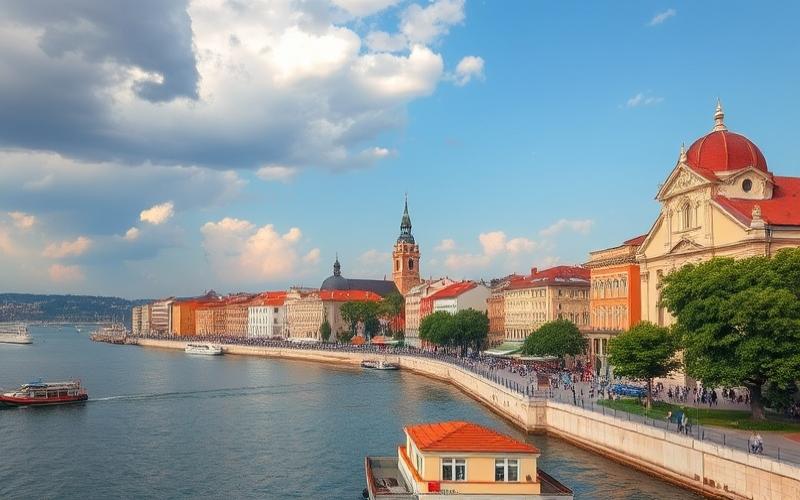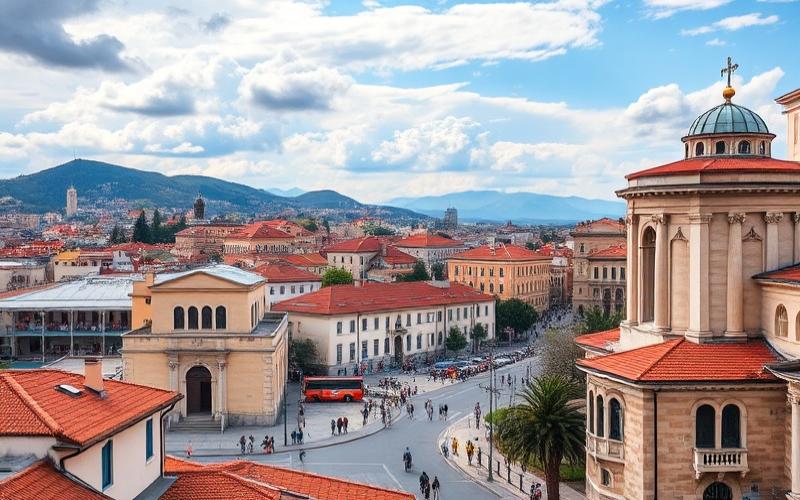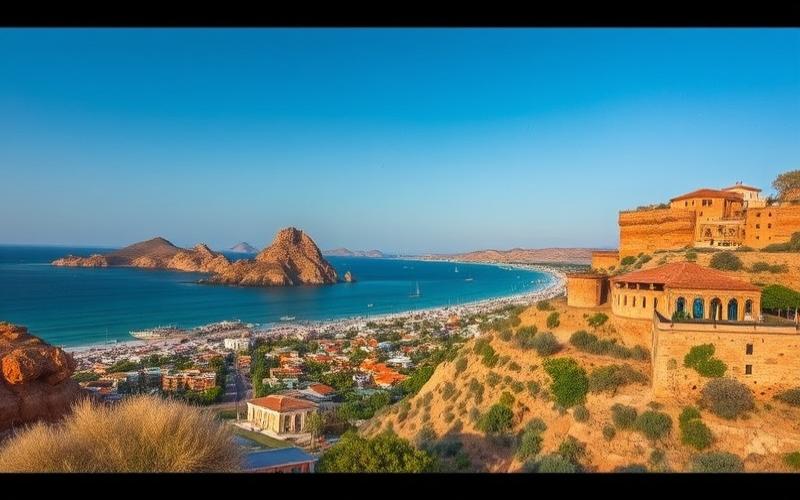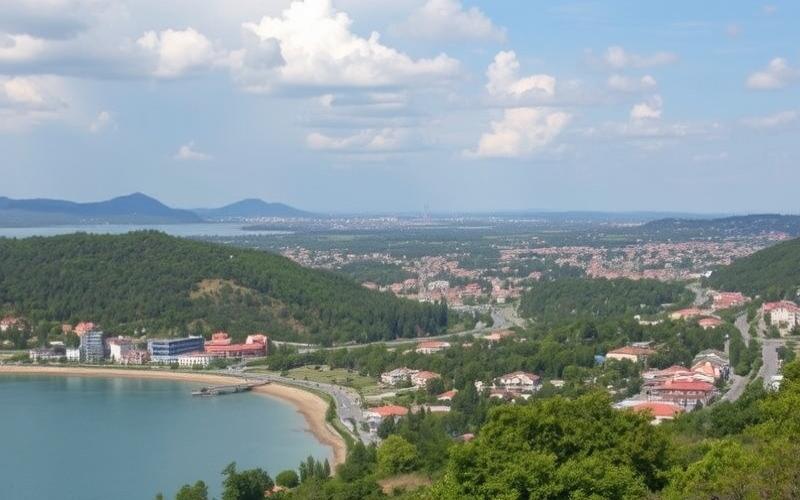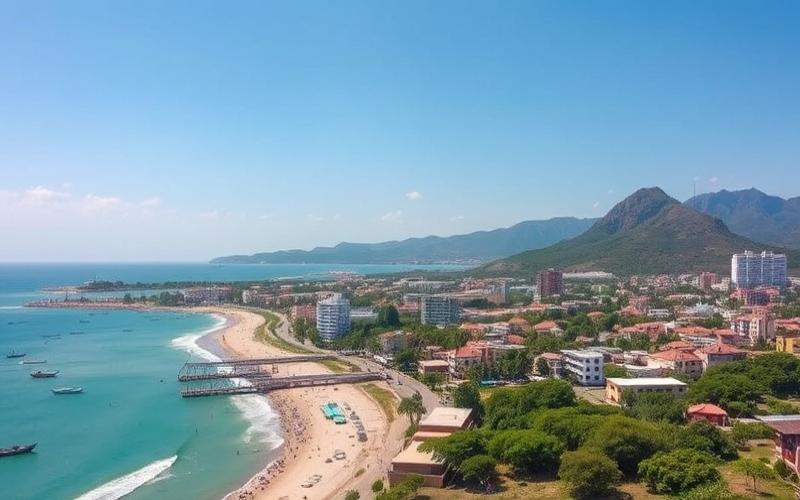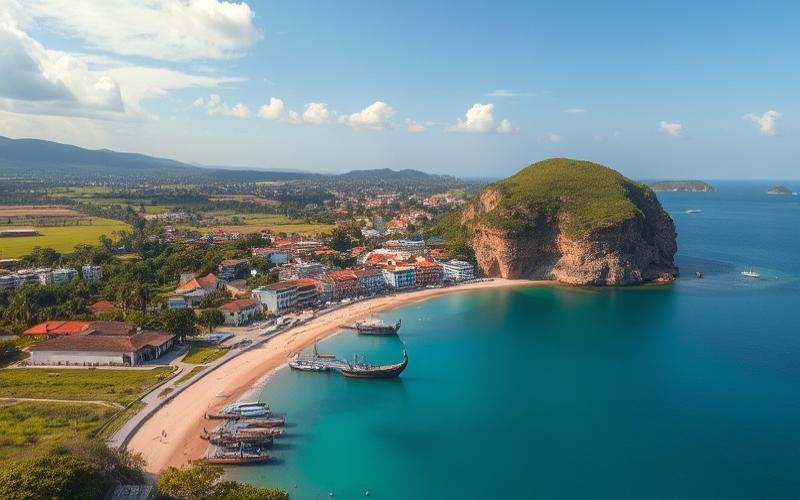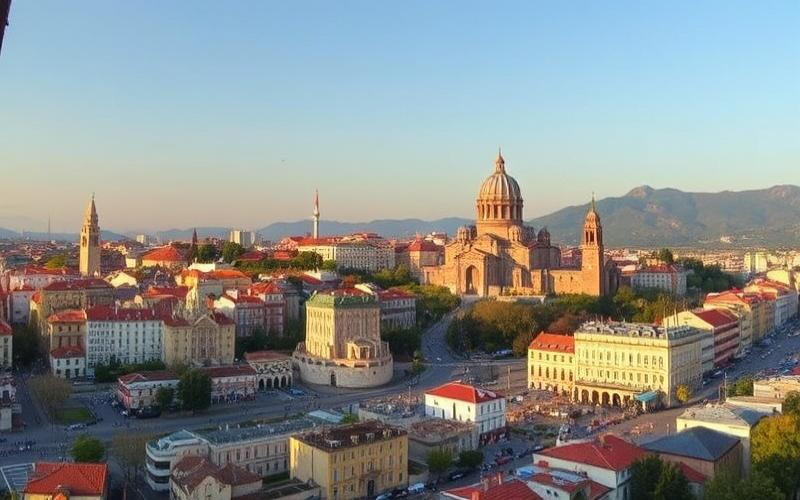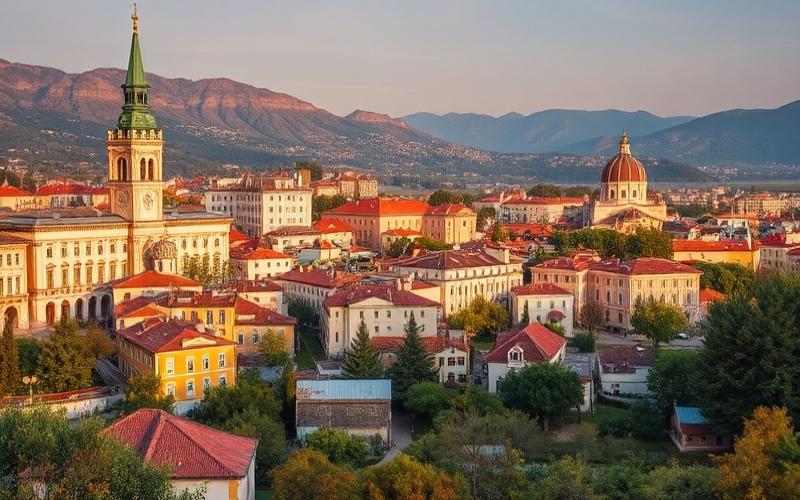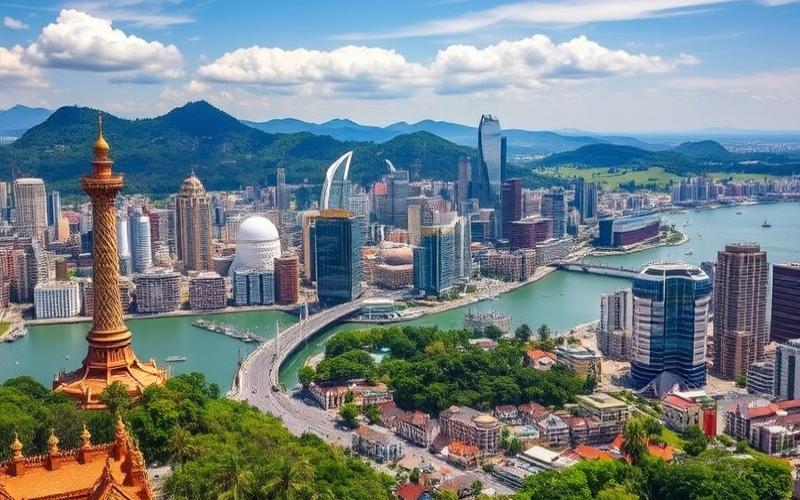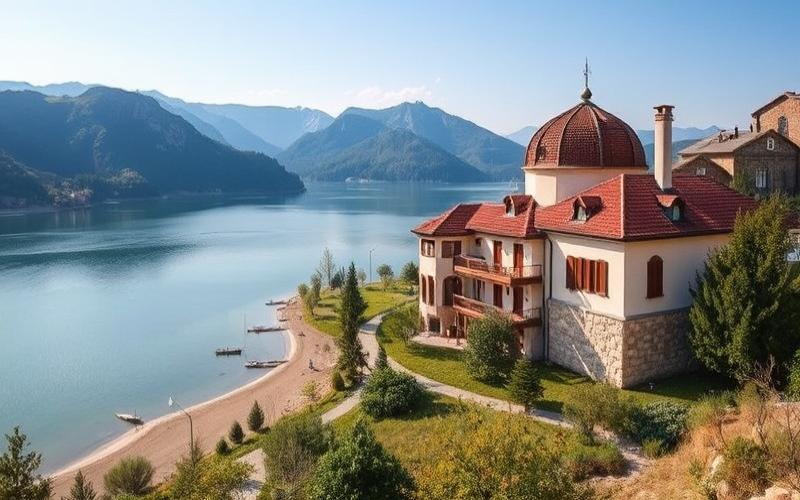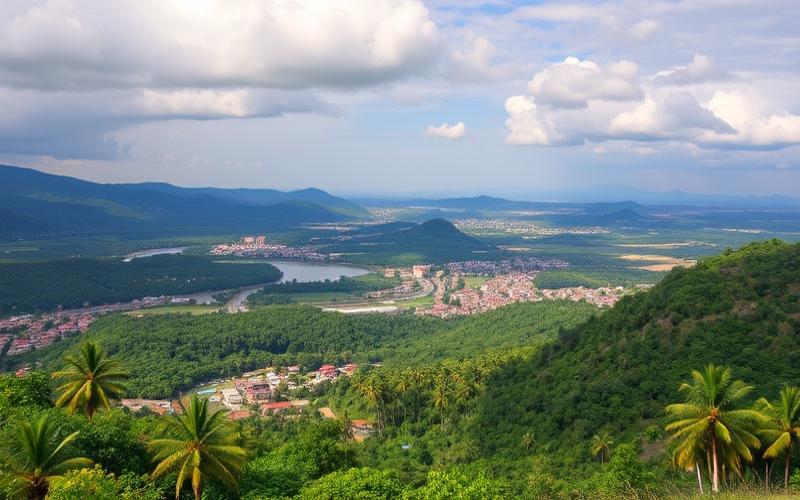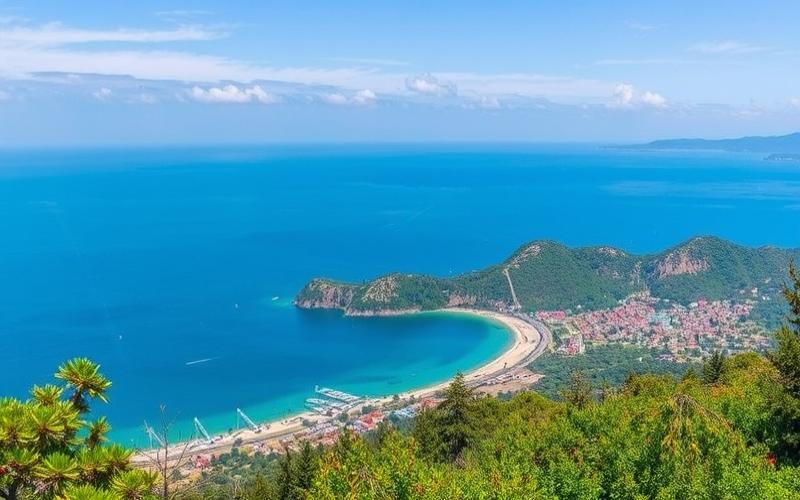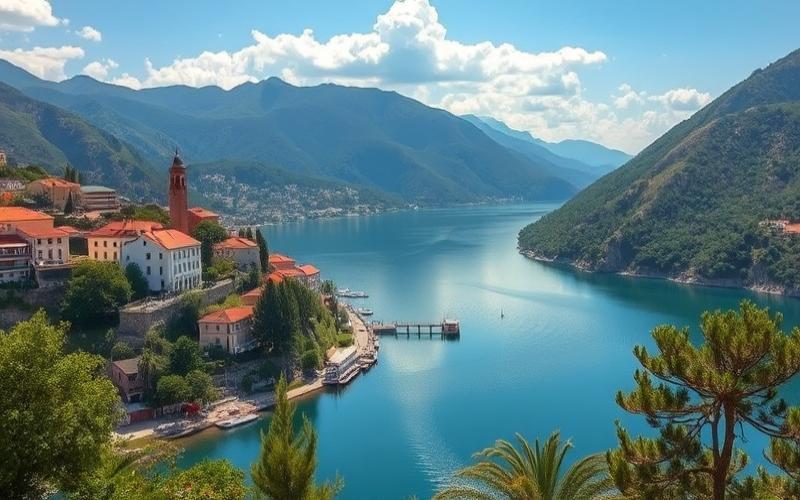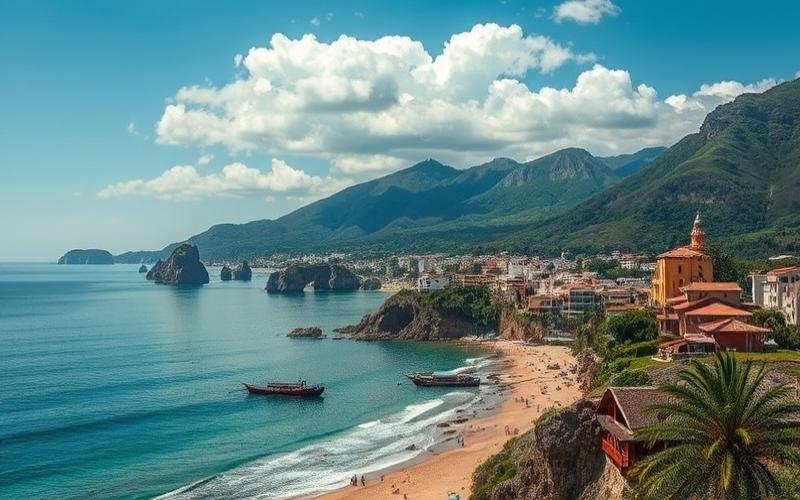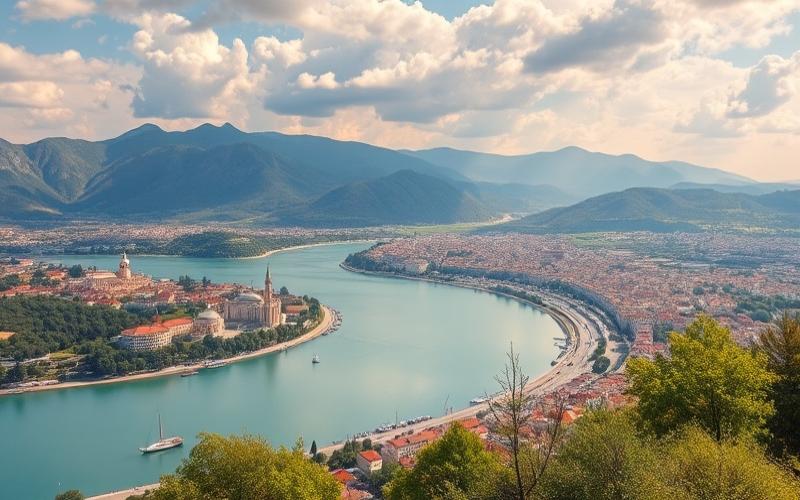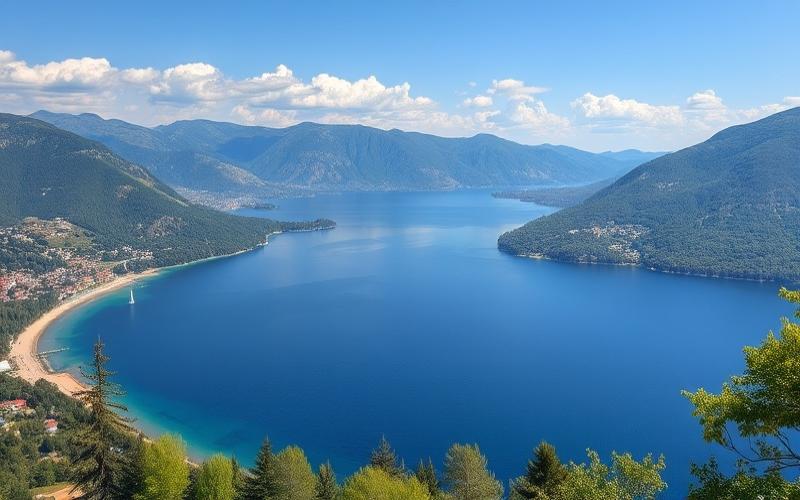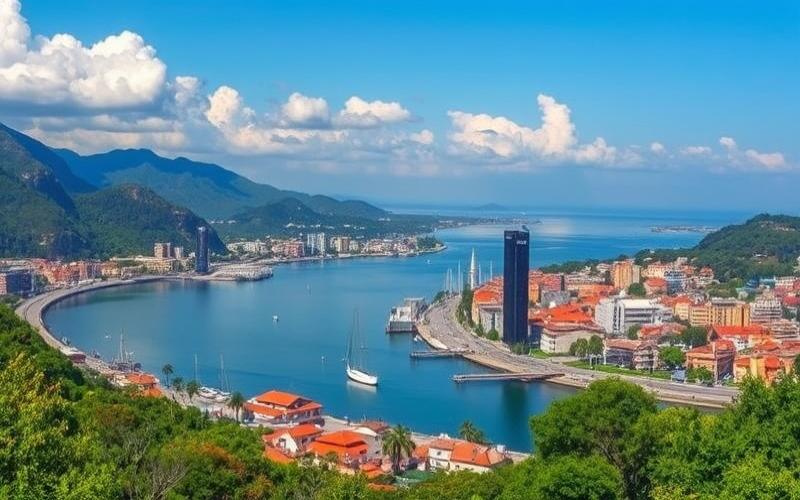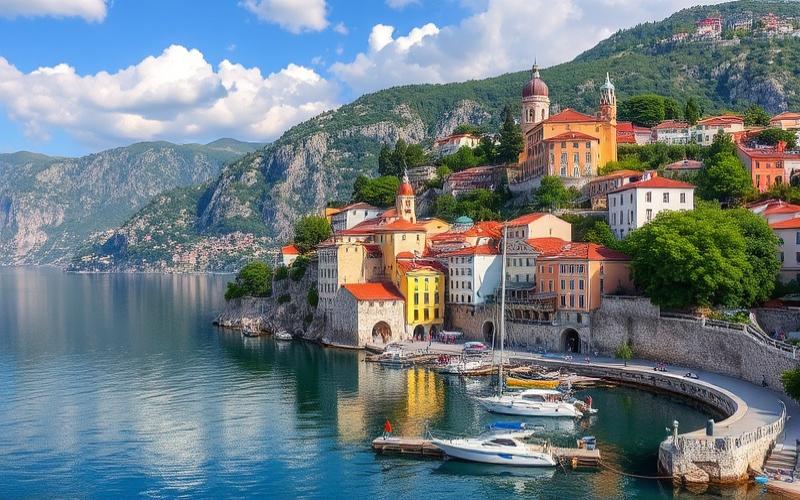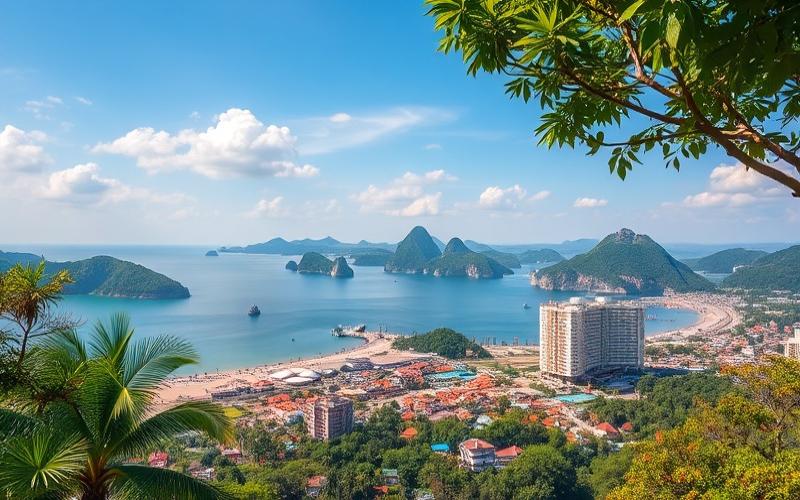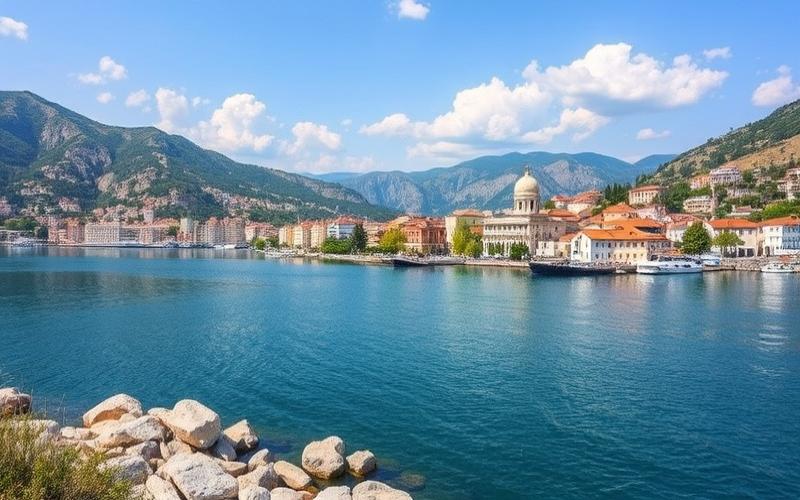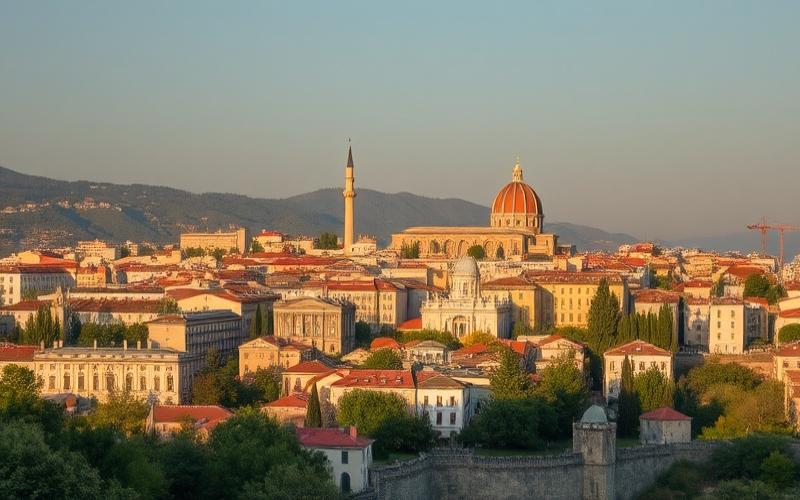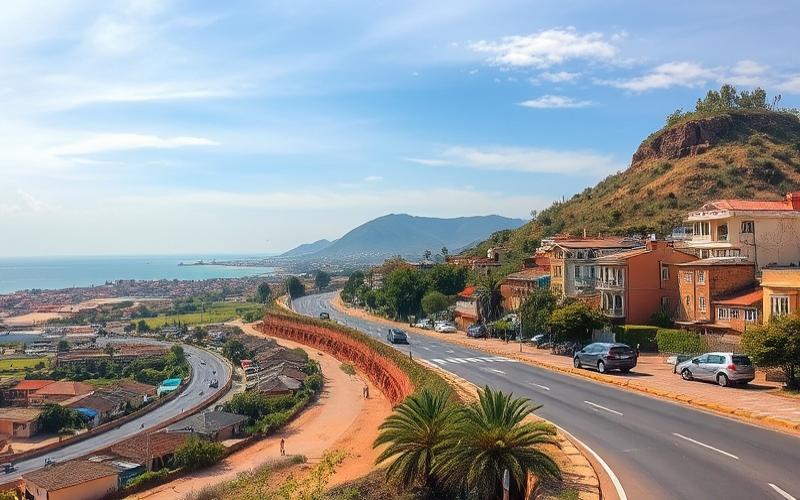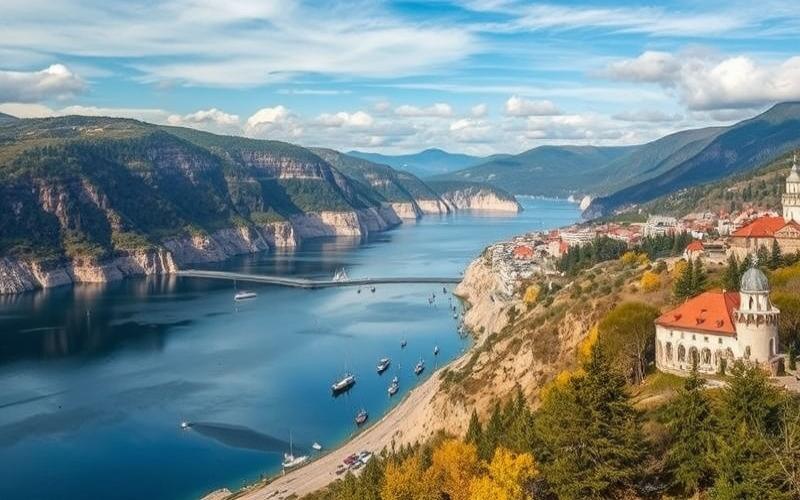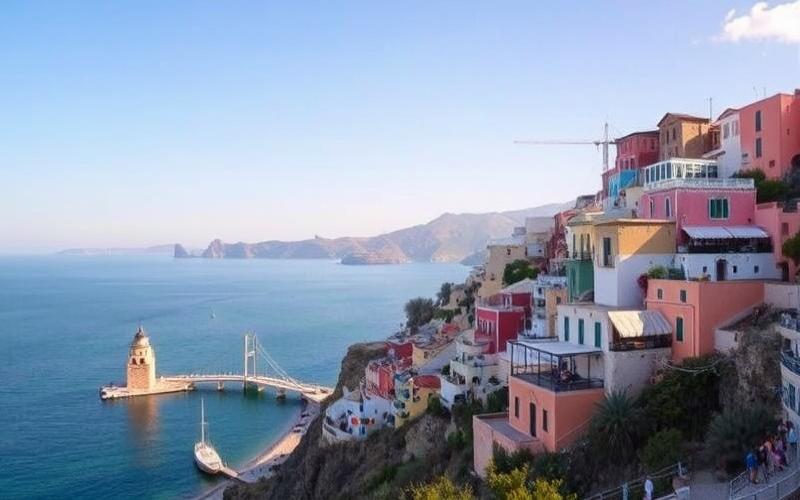
 Published on and written by Cyril Jarnias
Published on and written by Cyril Jarnias
Buying Real Estate in the Balkans: An Opportunity to Seize
Purchasing real estate in the Balkans holds undeniable appeal for investors seeking to diversify their portfolios and capitalize on opportunities in a rapidly developing region.
Comparative Analysis of Balkan Real Estate Markets
This article focuses on a comparative analysis between North Macedonia, where the real estate market has recently shown promising signs, and its neighbors, including Serbia, Albania, and Bulgaria, each offering unique advantages and legal and economic particularities that deserve close examination.
Why Choose North Macedonia?
You’ll discover why North Macedonia stands out as an intriguing alternative, with often lower transaction costs and high growth potential, while assessing how its neighbors can offer different but equally captivating investment opportunities.
Good to Know:
North Macedonia offers attractive tax benefits for foreign investors, with some of the lowest property taxes in the region.
Positioning North Macedonia Against Its Neighbors: A General Overview
North Macedonia occupies a strategic geopolitical position in the Balkans, sharing borders with Albania, Kosovo, Serbia, Bulgaria, and Greece. This situation grants it a role as a regional crossroads but also presents persistent historical and diplomatic challenges.
| Neighbor | Diplomatic Relations | Economic Relations | Sensitive Points / Recent Cooperation |
| Albania | Generally good relations; cooperation on Albanian minorities in North Macedonia | Growing trade exchanges | Shared interests in Euro-Atlantic integration |
| Kosovo | Official recognition in 2009; cordial relations despite initial tensions over border delimitation | Low volumes but potential for increase | Political support from Skopje to Pristina |
| Serbia | Rich but sometimes tense relations (religious issues and recognition of Kosovo) | Significant economic partnership | Scientific collaboration; religious differences |
| Bulgaria | Improvement after 2017 treaty then recent blockages on EU accession (Bulgarian veto) | Bulgaria among main trading partners | Identity and linguistic issues |
| Greece | Long-standing name dispute resolved by Prespa Agreement (2018), enabling NATO/EU integration | Gradual resumption of exchanges | Increased cooperation since dispute resolution |
Geopolitical and Historical Consequences:
- Yugoslav Legacy: North Macedonia established itself as an independent state relatively late in 1991, long under Serbian influence.
- Identity Conflicts: Relations with Greece (over the name) and Bulgaria (language/history) have hindered its international integration.
- Euro-Atlantic Dynamism: Active member of major international organizations, progressing toward EU membership despite several blockages.
Influence on the Real Estate Market:
- Relative political stability, reinforced by progressive European engagement even though some disputes persist with Sofia or Belgrade.
- Moderate cost of living compared to direct neighbors.
Indicative Comparative Table – Real Estate Market & Regional Attractiveness
| Country | Average Price per m² Urban Housing (€)* | GDP per capita (€)** | Political Stability |
| North Macedonia | ~1,300 | 6,547 | Moderate to stable |
| Albania | ~1,500 | 5,400 | Average |
| Serbia | ~2,000 | 8,900 | Moderate |
| Bulgaria | ~2,200 | 12,220 | High |
| Greece | ~2,900 | >20,000 | Stable |
* Recent estimates for new or renovated apartments in regional capitals
** Recent macroeconomic data
Border Exchanges & Economic Impact:
- Main trading partners are Germany, Bulgaria, Serbia, and Kosovo. Cross-border trade particularly facilitates agricultural and manufacturing exchanges.
- Trade deficit remains significant but is decreasing thanks to growing foreign investments.
Trade Agreements & Regional Infrastructure Projects:
Non-exhaustive list of levers boosting real estate attractiveness:
- Participation in SEPA project to facilitate European cross-border payments.
- Regional energy cooperation supported by Green Deal for better electrical/digital connectivity between neighboring countries.
- Development of highway axes linking Skopje to major Balkan urban centers.
Why Invest in North Macedonia?
- Market still affordable compared to prices throughout the Balkan region;
- Upside potential linked to future European integration;
- Strategic positioning between Western EU/Southeast Europe;
- Risk related to certain persistent diplomatic tensions that can temporarily impact confidence/foreign investments;
- Still fragile growth dependent on lasting stabilization of regional relations.
Good to Know:
North Macedonia, strategically located in the heart of the Balkans, maintains varied diplomatic relations with its immediate neighbors such as Albania, Kosovo, Serbia, Bulgaria, and Greece, which directly impact its real estate market. Historically, it has overcome tensions, notably with Greece, resolved by the Prespa Agreement in 2018, thus facilitating its European integration. Political stability and cost of living remain advantageous compared to its neighbors, making real estate more affordable. Regional trade agreements and infrastructure projects, like the pan-European Corridor X, stimulate economic exchanges and enhance accessibility, increasing attractiveness for investors. For example, real estate costs in North Macedonia are generally lower than those in Greece or Bulgaria, offering significant long-term capital gains potential while benefiting from its central position for cross-border trade.
Comparative Analysis of Real Estate Taxation in North Macedonia and Neighboring Countries
The importance of real estate taxation in the property purchase and investment process lies in its direct impact on profitability, total cost of ownership, and asset liquidity. Advantageous taxation can attract foreign investors, stimulate the local market, and influence purchase or resale choices.
Main Taxes Related to Real Estate in North Macedonia:
- Tax on income generated by real estate (rental, subletting): fixed rate of 10%, with possibility to deduct 10% or 15% for expenses depending on the property’s nature.
- Tax on real estate capital gains upon resale: generally subject to a flat rate (10%) with possible exemptions based on holding period or other specific conditions.
- Local property tax: relatively low compared to neighboring countries.
- Real estate transaction tax: not high, but varies by municipality.
Comparison of Tax Rates and Structures:
| Country | Tax on Rental Income | Annual Property Tax | Transaction Tax/Duty | Real Estate Capital Gains |
|---|---|---|---|---|
| North Macedonia | 10% (possible deduction) | Low | Moderate/Low | 10%, possible exemption |
| Albania | Approx. 15% | Average | Variable (often >2%) | Up to 15% |
| Serbia | Between 20–25% depending on situation | Average/High | ~2.5% | Approx. 15%, degressive |
| Bulgaria | Flat rate between 7–15% | Relatively low | ~3%, sometimes less | Reduced rate after several years |
| Greece | Progressive up to +30% | High for some urban properties | -3 to -24%, depending on value | -up to +15%, high complexity |
Concrete Examples / Case Studies:
An investor wishing to rent an apartment in Skopje will benefit from a single tax of only 10%, with a simple online declaration via e-Tax; the same investor would pay about twice as much in Serbia or Bulgaria, not to mention heavier taxation on quick resales. A French buyer acquiring a property over €40,001 can obtain residency if they are an EU/OECD citizen – a measure absent in several neighbors.
Specific Tax Incentives/Regulations Influencing Real Estate Purchase:
- North Macedonia
- Generally low direct levies
- Simplified regime for small local legal entities: tax reduced to only 1% if annual income below legal threshold
- Possible partial/multi-year exemptions on certain sales
- Facilitated procedure for foreign investors under reciprocity condition
- Albania
- Limited special programs, but some occasional reductions possible in certain sectors
- Serbia/Bulgaria
- Reduced rates after long holding; targeted incentives for tourism/rural investments
- Greece
- Temporary tax incentives (“Golden Visa”)
- Punitive urban taxation that can deter some profiles
Regional tax differences therefore play a decisive role in the respective attractiveness of real estate markets. North Macedonia stands out for its administrative simplicity and low rates that maximize net profitability from the first euro invested. For a foreign buyer/investor seeking high rental yield and reasonable legal security without excessive complexity or heavy tax pressure, it currently offers some of the best conditions in Southeast Europe.
Good to Know:
When purchasing a property, taxation plays a crucial role for investors, and a comparison of real estate taxation in North Macedonia with its neighbors reveals interesting particularities. In North Macedonia, taxes include a moderate annual property tax and a real estate transaction tax of 2 to 4%, which is competitive compared to Albania’s 9%, while Serbia and Bulgaria offer similar taxes around 2 to 3%. As for tax on property income, it is 10% in North Macedonia, unlike Greece which reaches 15 to 45% depending on income. Incentives such as exemptions on purchasing new housing in Bulgaria attract some investors. These tax variations directly influence purchase decisions, making North Macedonia attractive for those seeking lower entry costs, although the differences imply carefully evaluating local conditions before investing.
Advantages and Disadvantages of Investing in North Macedonia Compared to Its Neighbors
Advantages of Investing in North Macedonia
- High economic growth potential: The country benefits from economic dynamism supported by foreign direct investments, notably through programs like citizenship by investment. These financial inflows stimulate development projects in real estate, technology, and manufacturing.
- Macroeconomic stability: North Macedonia enjoys a strategic geopolitical position in Southeast Europe, making it an important logistics hub and gateway to European markets.
- Attractive tax incentives for foreign investors:
- Favorable taxation
- European subsidies for rural development
- Government support for improving vital infrastructure (drinking water, sanitation)
- Real estate market competitiveness:
- Very attractive prices compared to Greece, Bulgaria, or Albania.
- High potential in tourism and rural sectors thanks to preserved natural heritage and local initiatives.
| Country | Average m² Price Urban Real Estate (€) | Main Tax Incentives |
|---|---|---|
| North Macedonia | ~900 – 1,200 | Low taxation on rental income |
| Bulgaria | ~1,500 – 2,000 | Reduced VAT on certain properties |
| Albania | ~1,100 – 1,600 | Temporary exemptions for investors |
| Greece | ~2,000 – 3,500 | Golden Visa but heavier taxation |
Real estate prices in North Macedonia remain among the lowest in the Balkans while offering significant future appreciation margin.
Potential Disadvantages
- Persistent political risks
- Occasional political instability linked to internal tensions or with certain Balkan neighbors
- Democratic process still improvable compared to Greece or Bulgaria (EU members)
- Administrative constraints
- Sometimes lengthy or complex procedures to obtain real estate acquisition permits or start a new business
- Bureaucracy that can slow down some local real estate projects
- Infrastructure limitations
- General level below Greek or Bulgarian standards regarding public transport, secondary roads, or advanced digital services
- Increased dependence on European funding to modernize certain rural areas
Effects on Real Estate Purchase Decision
The tax advantages, upside potential, and affordable cost make investment particularly interesting for those seeking an emerging market with strong progression margin.
However, each investor should consider:
- Their tolerance for political risk,
- Their time horizon (projects sometimes requiring more time than in Greece),
- Needs related to the initial state of local infrastructure.
The choice will therefore largely depend on the search for high potential return versus security preference and administrative simplicity found in its neighbors already consolidated in their structural reforms.
Good to Know:
Investing in North Macedonia holds certain appeal thanks to its robust economic growth potential and macroeconomic stability that reassures investors. Compared to neighbors like Greece, Bulgaria, and Albania, the country stands out with attractive tax incentives for foreign investments as well as a competitive real estate market displaying significantly lower prices. However, it is crucial to consider certain disadvantages, such as political risks that can generate uncertainty, and sometimes complex administrative constraints. Moreover, infrastructure, though developing, may seem limited compared to the more established ones in Greece and Bulgaria. These combined factors strongly influence real estate purchase strategy, as affordable prices and advantageous taxations must be weighed against the political and infrastructural context to make an informed decision.
Disclaimer: The information provided on this website is for informational purposes only and does not constitute financial, legal, or professional advice. We encourage you to consult qualified experts before making any investment, real estate, or expatriation decisions. Although we strive to maintain up-to-date and accurate information, we do not guarantee the completeness, accuracy, or timeliness of the proposed content. As investment and expatriation involve risks, we disclaim any liability for potential losses or damages arising from the use of this site. Your use of this site confirms your acceptance of these terms and your understanding of the associated risks.



